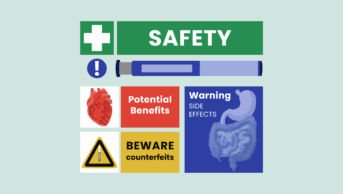
Shutterstock.com
A pharmacist working with a multidisciplinary team (MDT) identified an average of 5.4 drug-related problems (DRPs) per patient in older patients receiving intermediate care, a study has found.
The study’s findings, published as a pre-proof in Research in Social and Administrative Pharmacy, show that the pharmacist, who works full-time in a community reablement unit in Dublin, Ireland, identified 494 “clinically relevant” DRPs in 91 patients receiving intermediate care.
Of those DRPs, 406 recommendations were made to the wider medical team, and 89.2% of those recommendations were then implemented. Most of the recommended interventions were carried out on admission to care, or during a drug chart review.
The patients’ mean age was 82 years, and 89% of patients had polypharmacy, meaning they were taking more than five medicines on a regular basis. Some 42.9% of patients were regularly taking more than ten medicines.
Around a third (33.2%) of the pharmacist-recommended interventions were of “minor significance”, the study found, meaning that the DRPs were unlikely to have any adverse effects. But around two-thirds (66.8%) of the DRPs were of “moderate significance”, meaning that they were “likely to cause some adverse effects or interfere with therapeutic goals”, although not likely to cause death or lasting impairment to the patient.
The authors noted that, during the study, the pharmacist was regularly present on the wards, with “good access to the medical team”; this was likely to be a factor in the high recommendation implementation rates, the authors said. But they noted that only one pharmacist was involved and that patients in intermediate care settings are not acutely unwell; therefore, the results may not transfer to all other care settings.
However, the authors argue that the results show a key role for pharmacists in identifying and reducing DRPs in older adults receiving intermediate care.
Carmel Darcy, consultant pharmacist for older people at Western Health and Social Care Trust, Londonderry, Northern Ireland, said that the findings “definitely shine the light on how pharmacists bring a pharmaceutical focus to the MDT”.
Darcy said intermediate care is “the absolute optimum arena to tackle deprescribing and inappropriate polypharmacy”. The findings were similar to previous work done by her own team, which found that pharmacists made an average of 2.5 clinical interventions per patient, with 84% being graded as “significant”, she continued.
“Medicines review isn’t a single event; it’s a process, and I think this paper strengthens our argument that this is not just a one-off event where we go in and kick the can and walk out again. We take that patient on the journey,” Darcy added.
“In my opinion, we as pharmacists need to not own the medicines review; the patient needs to own it. We enter in and out of their arena, but building on the colleagues before or the colleagues coming after us, to then continually address that process of review.”
Darcy said the the findings help build “the evidence base that we need to raise the autonomy of pharmacists, and really push towards a more autonomous role as an independent prescriber”.
READ MORE: Pharmacists on ward rounds speed up interventions and could save money, study finds


